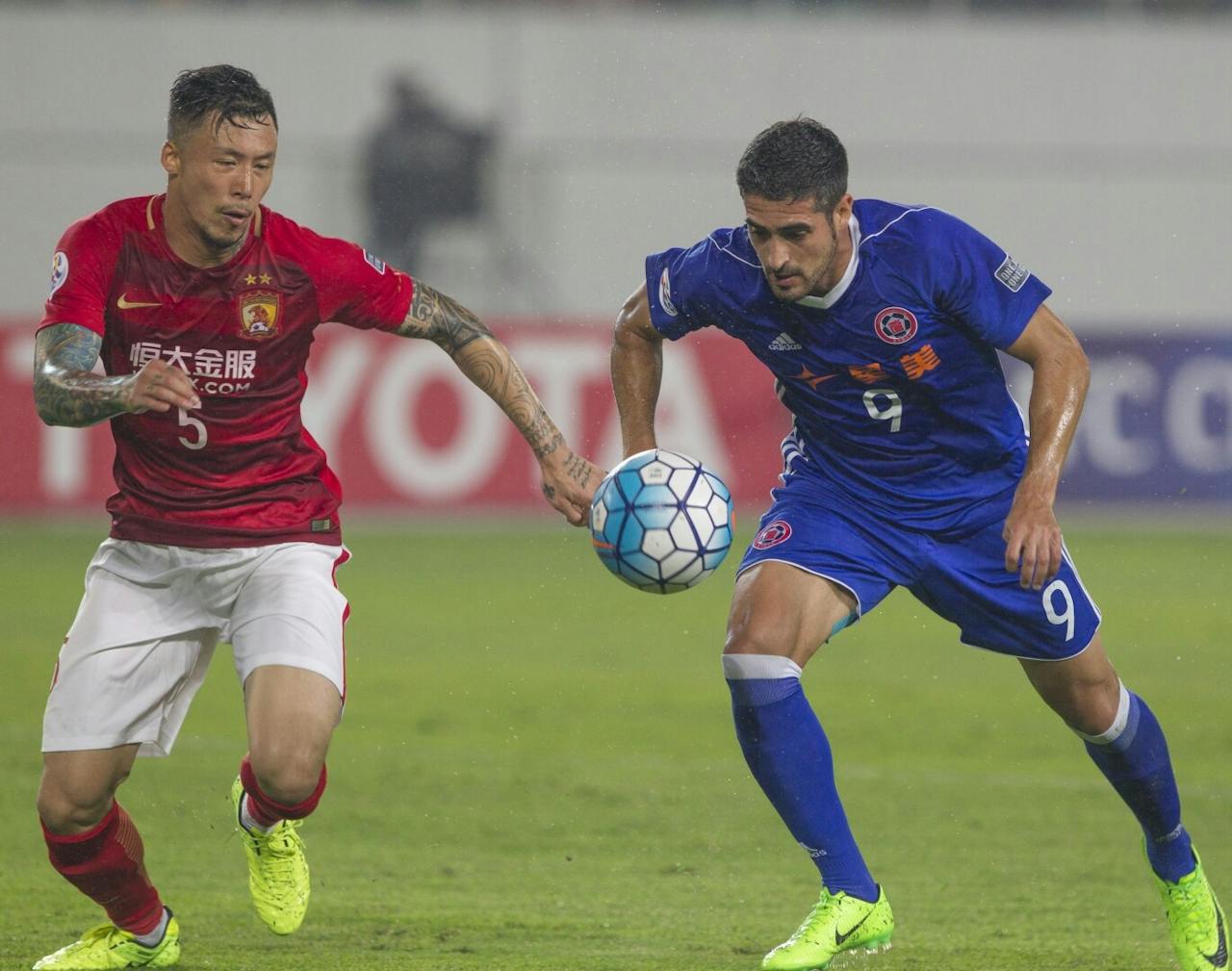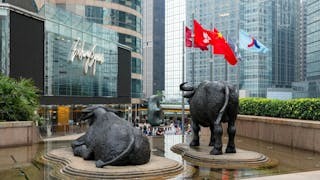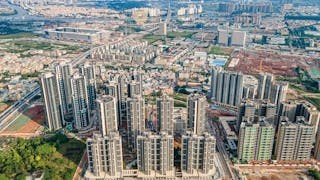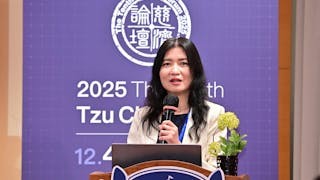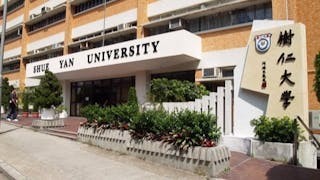Last month, Guangzhou Evergrande Taobao Football Club (Evergrande Taobao), whose red jersey sports the familiar China stars, stepped up a gear for the AFC Champions League.
In the round of 16, it knocked out J League’s representative, Kashima Antlers, one of its arch-rivals in the region. The same month, shares of the club, the only one in Asia that is listed, closed at 48 yuan per share, valuing it at US$2.7 billion. This value eclipses that of Manchester United, or Red Devils as it is called, the only major football club whose shares are traded on an international stock exchange.
Prize money for the world’s most valuable club
Before European football elites closed their seasons, Man United, the most successful English club and a powerhouse in Europe, clinched for the first time the UEFA Europa Cup, a second rated European trophy. The club is nevertheless euphoric because this is the first European title the club managed to lift since Alex Ferguson, its charismatic manager, retired four years ago.
For the club’s officials in the boardroom, however, the importance of the medals may be less about its football status – most top teams treat the cup as a consolation for failing to compete in the UEFA Champions League, the cup’s bigger and more prestigious cousin, but more about the winner’s automatic entrance to next season’s Champions League.
While still celebrating that on-field success, the Red Devils were awarded another form of championship. KPMG, a big four accounting firm, and Forbes last month announced their respective annual prizes of the “rich and valuable”. Topping their lists was, coincidently, Man United. KPMG quoted a value of €3 billion, or US$3.4 billion while Forbes cited US$3.7 billion. Its market capitalization, calculated from the shares traded on the NYSE at around US$16 a piece, is US$2.6 billion as of June 2017.
Game of market capitalization
While the Europeans have begun their summer breaks, China’s football season is only just heating up. Sitting at the top of the league with 31 points from 12 games is Evergrande Taobao, the reigning, six-time champion of China Super League (CSL).
Facing its counterparts in Manchester, China’s Red can put up a good fight inside the stock exchanges. Its share price as quoted on the NEEQ board, China’s version of Nasdaq-style, over-the-counter trading board, shows a 52-week range of between 48 yuan and 50 yuan per share. At a mid-point of 49 yuan, the Chinese club would boast a value at 19 billion yuan, or US$ 2.8 billion.
However, the parity of the two teams in red perhaps ends here.
Price your chest
To begin with, a rather technical but material difference concerns the very nature of a public company — the level of public float.
Man United, listed on NYSE in 2012 amid a turbulent season, has a current public float of about 27 percent, according to its latest annual accounts. Evergrande Taobao, however, has far fewer shares in public hands. Of its 397 million outstanding shares, only 21.7 million shares or 5.4 percent are considered public, valuing this part of the shares at less than 1 billion yuan.
However, the differences between the two Reds go much deeper. The most salient difference between the two clubs would be their business models, as reflected in their revenue composition.
Man United’s 2016 annual accounts show that the main sources of income are commercial sponsorship (52 percent of total), broadcasting (27 percent) and match day sales (21 percent). The bias toward commercial sponsorships is in fact what sets Man United apart from its English peers who, on average, have even distribution among the three revenue streams, although the weaker the team is, the more it relies on broadcasting revenue, everything being equal.
Make no mistake, however. It is commercial revenue which showcases the economic clout of a club. Here, Man United manages to attract income not just from the “the treasure chest”, its jersey’s sponsors in recent years have been fellow American Nike and Chevrolet, but also from a whole host of global and regional brands.
Last counted at 30, these names include those who are not traditionally considered sports sponsors like 20th Fox Century (films, USA), Nissin Foods (food products, Japan) and Milly (mattresses, China).
Business is not as usual
The model in Evergrande Taobao, however, is very different.
Firstly, its revenue breakdown in 2016 shows similar, outsize share of commercial revenue, which contributes 71 percent of total revenue.
However, 67 percent of the commercial revenue (or close to 50 percent of total revenue) comes from Evergrande, its parent. Four of the top five customers are its parent and the construction companies or suppliers closely associated with it. While it is fair to say that the club enjoys unparalleled support from its parent, the other side of the coin would also be true that this domination may have hindered its ability to diversify its revenue stream.
Aside from this, broadcasting revenue accounts for 17 percent while tickets sales come in third at 9 percent. This shows a unique situation in China.
Until recently, CSL’s broadcasting right was predominantly controlled by the monopolistic state-owned media, which paid very little to screen the games. Worse still, the consideration due was sometimes bartered with unfriendly airtime.
It was only after China Sports Media, a subsidiary of China Media Capital Group, made headlines in 2015 with 8 billion yuan for a five-year broadcast right that the game’s value has started to flow through. However, complications may still burden the revenue sharing scheme with layers of expense.
Indeed, the six-time champion reported in 2016 to have earned about 16 million yuan in revenue from CSL which distributed the broadcasting revenue through a system of rationing based on some formula of league results. This amount was about 1 percent of the annual broadcasting fee paid by the media company.
The “governing factors”
Business models, however, do not necessarily translate well into the pricing a football club.
Despite its commercial clout, Man United’s market price looks “undervalued” compared with that of Evergrande Taobao. This could be ascribed to a combination of “governing factors”.
Man United is owned and governed by an absentee majority shareholder whose ownership was disliked by its fans, to say the least, from the onset; it was hastily listed in 2012 in a country where “football” means a totally different ball game; its balance sheet is still saddled with plenty of debt, which is a legacy of the jaw-dropping £790 million leverage buyout completed 12 years ago; and finally, it is still looking for someone to step into the shoes left out by Ferguson.
The appointment of Jose Mourinho, paradoxically both a fierce rival and a close ally of Ferguson, may have silenced some critics by winning the Europa Cup last month. Mind you, his team finished sixth in the league – David Moyes, one of the interim managers, was fired in the year when his team finished seventh.
In contrast, the “high” valuation of the Chinese Red can also be attributed to its “governing factors”.
Despite making a combined net loss of 1.7 billlion yuan in the past two years, the club is backed by Evergrande, the country’s most visible and aggressive property developer whose reported profit in 2016 is about 5 billion yuan. Many have said that the group has grown to a size “too big to fail”.
In recent weeks, despite the central bank-led campaign to deleverage the financial system, the Hong Kong-listed corporation has been busy closing billions of dollars in bond issues for refinancing, with approval from Beijing. Also, the club’s second largest shareholder is an entity controlled by Alibaba’s Jack Ma, the e-commerce king of China. The e-commerce giant’s last reported profit for March 2017 is 41 billion yuan.
The combined net worth of the two masterminds behind Evergrande Taobao would be nine times larger than that of the family behind Man United.
The time will come when Man United and Evergrande Taobao play a game on the grass. It would be interesting to see how the power behind the pitch will translate into the power inside the pitch.
We are authorised to republish the article from the author.



